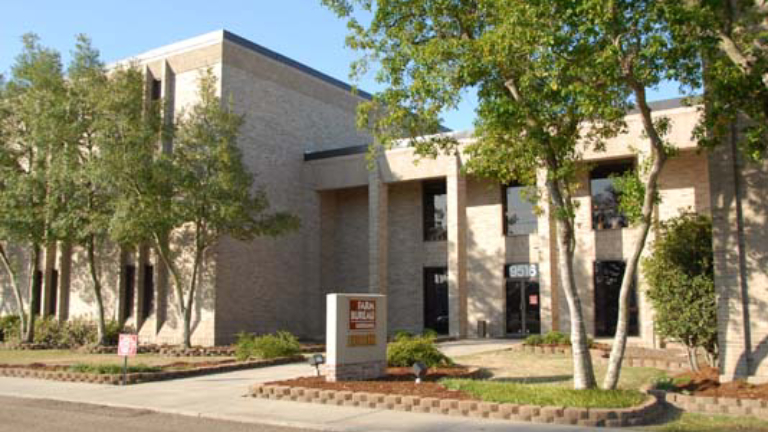Customer Story
Louisiana Farm Bureau Federation
The Louisiana Farm Bureau Federation purchased a three-year Trane Select Service Agreement for their 76,000 square-foot headquarters building. For the next three years Trane will maintain and service the building’s HVAC systems with a cap of $5,000 per incident. With a Select Service Agreement, Louisiana Farm Bureau gets all the benefits of a Trane Scheduled Agreement, plus parts and labor coverage for maintainable equipment selected by the customer and approved by Trane -- putting service and maintenance needs on a systematic, scheduled basis. A Select Service Agreement can cut unexpected breakdowns as much as 75 percent, reduce energy use up to 20 percent, cut downtime nearly 40 percent, and reduce repair and maintenance costs up to 30 percent.

Quick Facts
- Industry
- Local Government
- Products
- Trane Select Assist • Chillers
- Topics
- Efficiency • Energy Efficiency
- Services
- Repair and Maintain

Project Summary
The Louisiana Farm Bureau Federation purchased a three-year Trane Select Service Agreement for their 76,000 square-foot headquarters building. For the next three years Trane will maintain and service the building’s HVAC systems with a cap of $5,000 per incident. With a Select Service Agreement, Louisiana Farm Bureau gets all the benefits of a Trane Scheduled Agreement, plus parts and labor coverage for maintainable equipment selected by the customer and approved by Trane -- putting service and maintenance needs on a systematic, scheduled basis. A Select Service Agreement can cut unexpected breakdowns as much as 75 percent, reduce energy use up to 20 percent, cut downtime nearly 40 percent, and reduce repair and maintenance costs up to 30 percent.
Challenge
Harvey Bankston, Building Supervisor and Associate Building Manager, wanted to improve maintenance and service for the HVAC system which includes two older reciprocating chillers and a scroll chiller. Bankston said, “I was looking for a supplier that could provide maintenance and service. I called other building managers and asked who they’d recommend. Trane was always at the top of the list. About that time, Casey Kirk from Trane called on me!”
Solution
Kirk said, “Their previous service supplier was reactive to their service needs. They would do service work after equipment had already failed, making it an urgent situation. Trane, however, is very proactive in our approach to service. We focus on maintenance and planned, proactive service so that the customer can avoid downtime and emergency situations.”
Kirk recommended a Trane Select Service Agreement with a Cap. A Select Service Agreement helps building owners plan ahead and address maintenance needs on a systematic, scheduled basis. A Trane Select Service Agreement can:
- Cut breakdowns by as much as 75 percent
- Reduce energy use up to 20 percent
- Cut downtime nearly 40 percent
- Cut service repair and maintenance costs up to 30 percent
For three years Trane will maintain and service the building’s HVAC systems with a cap of $5,000 per incident. Trane worked with Louisiana Farm Bureau to select the major components to be covered. Trane covers the cost of repairing the system or replacing selected components that may fail. Louisiana Farm Bureau also took advantage of the Trane Anticipation Discount Program, getting a significant discount by paying for the Select Maintenance Agreement up front instead of over the three-year term.
Results
Bankston said, “This agreement is working great. We have a good relationship with Casey and Trane, and it has been a blessing to have him working with us.”
Bankston also notes that Trane has assigned a single technician with primary responsibility for the Farm Bureau building and who is completely knowledgeable on the building’s systems and requires no additional familiarization. Says Bankston, “The personal service that we get from Trane is a big advantage. And it is saving us money. Our agreement has a $5,000 cap. Trane pays for any needed service or repairs up to $5,000 and then we pay the remainder. We’ve had a couple instances where we had to use the agreement, but we have yet to pay for anything other than for the cost of the maintenance agreement. I would definitely recommend the Trane Select Service Agreement program to other facilities managers.”
About Louisiana Farm Bureau Federation
The Louisiana Farm Bureau Federation was established in 1922 as a private, non-profit, non-governmental agency to bring a voice to agricultural issues, speaking for farmers and ranchers at the local, state and national level. The Louisiana Farm Bureau is part of the American Farm Bureau Federation. It is the State of Louisiana’s largest general farm and ranch organization with nearly 160,000 members including farmers, ranchers, landowners, agricultural lenders and others with a vested interest in Louisiana agriculture.
